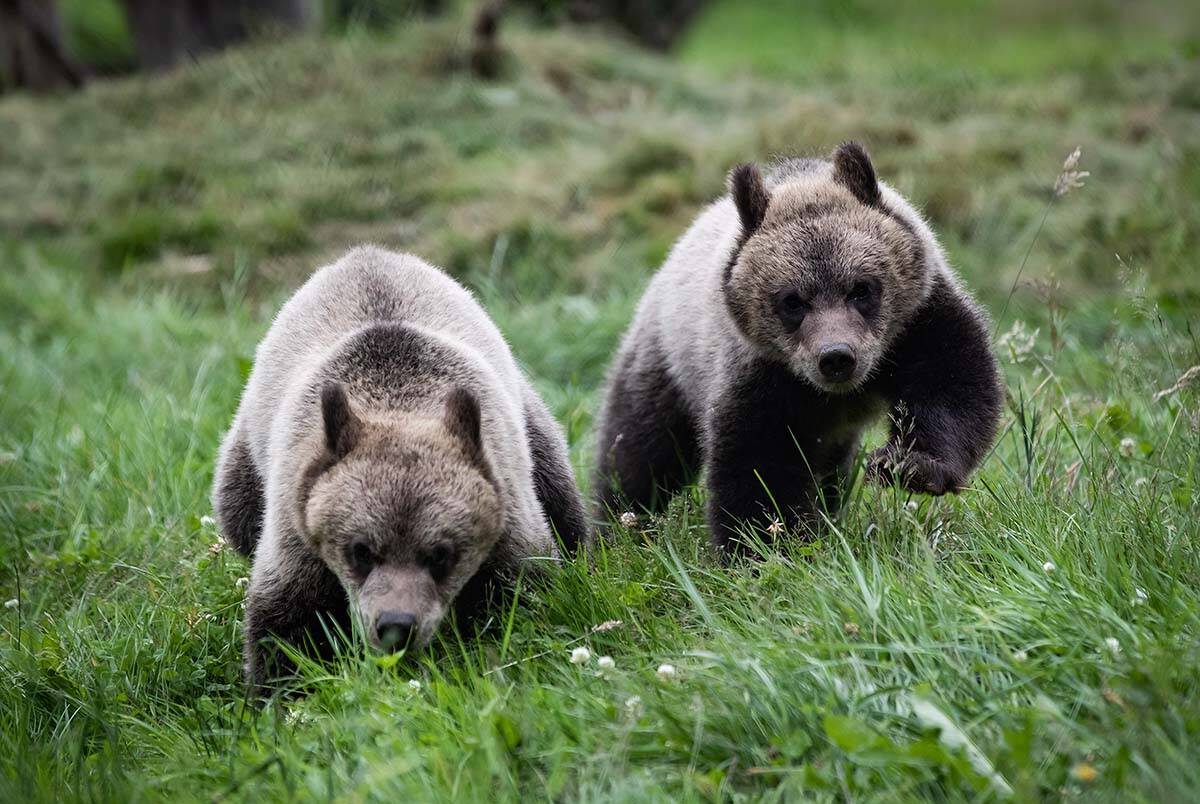A B.C. animal rights group said provincial conservation officers are euthanizing too many young bears in situations where non-lethal options may be available.
The Fur-Bearers filed a complaint against BC Conservation Officer Service in April after accessing records that show officers euthanized 77 bears under the age of six in 2021.
“Conservation officers are not wildlife managers, and their role is related to public safety. But the records show killings of bear cub that were not related to public safety,” Lesley Fox, executive director of The Fur-Bearers, said in a news release.
The group said a concerned member of the public obtained the records through an Access to Information Act request and passed them on to it.
In its official complaint, The Fur-Bearers highlighted several examples from the documents where they believe officers overstepped their duties.
In the first, an officer was called for a black bear cub that was “very skinny” and “missing fur” and had been spotted twice with no sign of its mother. The officer caught the cub in a trap, confirmed it was in bad condition, and euthanized it. They spoke with a veterinarian about the situation prior to catching the cub, who advised they put it down, but didn’t have the vet assess the cub in person, according to records.
In the second case, an officer responded to a bear cub laying beside a gate near a highway and eating something. When the cub approached the officer’s truck, they got out and yelled at it before hitting it with a rock, records show. The bear continued to advance, according to the records, and the officer chose to euthanize it. Assessing it afterward, the officer determined the cub had been in very poor condition.
READ ALSO: 31 bears euthanized in the Elk Valley
The Fur-Bearers argued in its complaint the officers should have pursued non-lethal options in both instances.
“…there was no public safety risk, and the cub was killed based on a field level assessment by an unqualified individual,” the group said.
Ellie Lamb, a bear viewing guide and educator, is quoted in The Fur-Bearers’ news release saying there are better ways to manage non-emergency encounters.
“Black bears are capable of learning boundaries and will often respond to a firm and calm voice. B.C. is also graced by numerous wildlife rehabilitation centres that can provide a second chance to orphaned or injured bears,” she said.
In an emailed statement, the BC Conservation Officer Service said it works hard to prevent having to put down any bear.
“Every wildlife situation is unique and is assessed individually, taking into account ever-changing circumstances, such as the risk to public safety and the animal’s ability to survive in the wild,” it said.
It said bears that have habituated to humans or been conditioned to eat human food cannot be relocated or rehabilitated. It added it continues to work on educating the public about the importance of managing attractants like food, garbage, pet food and bird seed.
Tips on reducing attractants and keeping wildlife safe can be found at wildsafebc.com.
READ ALSO: ‘Huckleberry’ the bear killed after B.C. residents admit to leaving garbage out for videos
@janeskrypnek
jane.skrypnek@bpdigital.ca
Like us on Facebook and follow us on Twitter.

